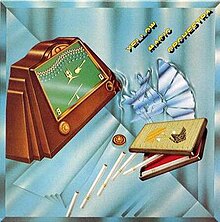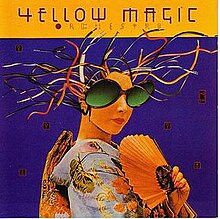Yellow Magic Orchestra (album)
1978 album by Yellow Magic Orchestra / From Wikipedia, the free encyclopedia
Dear Wikiwand AI, let's keep it short by simply answering these key questions:
Can you list the top facts and stats about Yellow Magic Orchestra (album)?
Summarize this article for a 10 year old
Yellow Magic Orchestra is the first official studio album by Japanese electronic music band Yellow Magic Orchestra, who were previously known as the Yellow Magic Band. Originally released by Alfa Records, in Japan in 1978, the album was released by A&M Records in Europe and the United States and Canada in early 1979, with the US version featuring new cover art but without the closing track of "Acrobat". Both versions would later be re-issued in 2003 as a double-disc format, with the American version as the first disc.
| Yellow Magic Orchestra | ||||
|---|---|---|---|---|
 | ||||
| Studio album by | ||||
| Released | November 25, 1978 (1978-11-25) | |||
| Recorded | July 10 – September 5, 1978 | |||
| Studio | Alfa Studio A, Shibaura, Minato, Tokyo | |||
| Genre | ||||
| Length | 37:35 | |||
| Label | Alfa | |||
| Producer | Harry Hosono | |||
| Yellow Magic Orchestra chronology | ||||
| ||||
| Singles from Yellow Magic Orchestra | ||||
| ||||
| Alternative covers | ||||
 US cover | ||||
The album was an early example of synth-pop,[1][2] a genre that the band helped pioneer. It contributed to the development of electro, hip hop,[3] techno,[4] and bleep techno.[5] The album's innovations in electronic music included its use of the microprocessor-based Roland MC-8 Microcomposer music sequencer which allowed the creation of new electronic sounds,[6] and its sampling of video game sounds.[2][7]
The album sold 250,000 copies in Japan and entered the Billboard 200 and R&B Albums charts in the United States.[8] Its most successful single was "Computer Game / Firecracker", which sold over 400,000 records in the United States[9] and was a top 20 hit in the United Kingdom.[10]